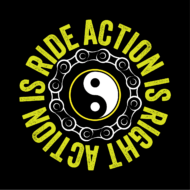Just finished reading The Medium and the Message by Marshall McLuhan. A few sections struck me in particular:
Moderator: What do you suggest as alternatives that we offer instead of the search for identity through violence?
McLuhan: Dialogue. The alternative to violence is dialogue, which is a kind of encounter interface with others, people and situations. Yes, we live a world in which we have so much power. In the old days, you could fire or pull a trigger on a revolver and hurt people, but today, when you trigger this vast media that we use, you are manipulating entire populations.
The hidden aspects of the media are the things that should be taught because they have an irresistible force when invisible. When these factors remain ignored and invisible, they have an absolute power over the user. So yes, the sooner that the population, young or old, can be taught the effects of these forms, the sooner we can have some sort of reasonable ecology among the media themselves.
What is desperately needed is a kind of understanding of the media which would permit us to program the whole environment so that literate values would not be wiped out by new media. If you understand the nature of these forms, you can neutralize some of their adverse effects, and foster some of their beneficent effects. We have never reached this level of awareness.
Moderator: “Professor McLuhan, you spoke about us going outside for our privacy and coming home for the social aspect. I’d like to hear you comment on that in relation to electronic man’s new thirst for meditation, contemplation, mystical experience.
McLuhan: Well, as you know, transcendental meditation has become exceedingly popular. All forms of mystic meditation have become very popular in our television age. We have gone very far to the East since television. Just as an exercise in awareness and so on, meditation has grown and come in very big since television. I’m not sure that that is good or bad at all, it just has happened. Do you think of it as a very significant event?
Moderator: I think of it as very significant, yes. It seems to me almost like a nostalgia for a return to that private self, without going outdoors to find it. Return to an inner union with God, with yourself, which electronic man seems to need and is looking for in this way.
McLuhan: Jane Austin, of all people, has quite a big comment on that inside/outside. She said that people go outside to be alone just to prove their inner resources, that they don’t need people. We can make it alone, and that the romantic movement was based upon this psychic development.
Jane Austin has quite a bit to say about that. I was amazed to come across it in her work a few months ago. But there’s another American writer, Hawthorne, who regarded this American habit of going outside to be alone as an undermining of democracy. He said this is sheer aristocracy, this is putting on the aristocratic thing and it is going to undermine our whole democracy. Hawthorne regarded it with great alarm. The moralist, by the way, is always a person who never studies effects so much as studies the content of situations, studies the figure and not the ground.
This, I think, is of great concern to advertisers, who are here tonight in some numbers. Advertisers need to study figure, not the ground. They tend to count noses rather than to estimate the pressures under the noses. The form of gnosis.
It occurs to me that almost anything McLuhan says about tv works if you replace ‘tv’ with ‘the internet’

